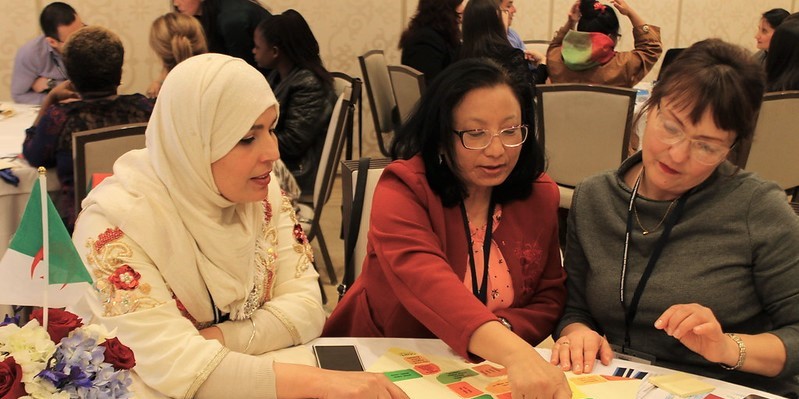Three principles for teacher-powered education quality improvement

Reversing the growing global inequalities in educational outcomes requires governments, donors, and education leaders to take urgent systems level action to improve classroom instruction and support teachers on a broad scale. In this piece we share three principles to meet this goal.
At the 2023 Comparative and International Education Society (CIES) annual conference, IREX education experts will share learning from our experience partnering with governments to design effective teacher policies and support. Drawing from this work, we believe that career pathways for teachers, an integrated emphasis on emotional well-being, and teacher-led research to inform policy are key principles to reverse pandemic-era learning losses and begin making progress towards achieving quality education for all. In case you cannot join us at these sessions, here are three lessons emerging from our work.
Create career pathways and professional opportunities for teachers
Career pathways and professional opportunities for teachers can promote retention of effective teachers and increase youth interest in teaching as a career. After the Government of Jordan introduced a new teacher policy framework and embarked on targeted marketing campaigns, a nationally representative survey showed an increase in perceptions of teaching as a medium or high-status career. To build on these improvements, the Government of Jordan plans to continue expanding pre-service teacher education while also offering continuous professional development that encourages creativity and excellence in the teaching profession.
Prioritize the emotional well-being of both students and teachers
Teachers often play a first responder role when students face mental health challenges. This is especially true in conflict and post-conflict environments where counseling and support services are limited. In Iraq, IREX found that training to promote the emotional well-being of teachers and students can help to create a classroom environment where students are ready to engage in learning. Following training, at least 73% of trained educators consistently used new strategies in their classrooms and an external evaluation found evidence of improvement in academic performance, classroom engagement, and social cohesion as a result of the new practices.
Draw from teacher-led research and experience to inform education policy
Meaningful reform to improve education quality requires input from the fields of research, policy, and practice. Too often, teachers are left out of research and policy-related conversations. Alumni of the Fulbright Teacher Exchanges are demonstrating how teacher-led learning and research can help to build effective approaches from the classroom up. One example comes from Uganda, where teacher Elizabeth Rwabu recognized an access gap for students with visual impairments as learning went online during the pandemic. In response, she launched a project to train teachers to create accessible learning material with technology. Learning from similar teacher-led efforts is key to designing curriculum and policies that are feasible to implement in the classroom.
In addition to these insights focused on teachers and teacher policy, we will also share learning from media literacy programs, youth-led implementation research, virtual exchange, research on technology-enabled learning, and higher education reform.
Click here for a full list of IREX at CIES.